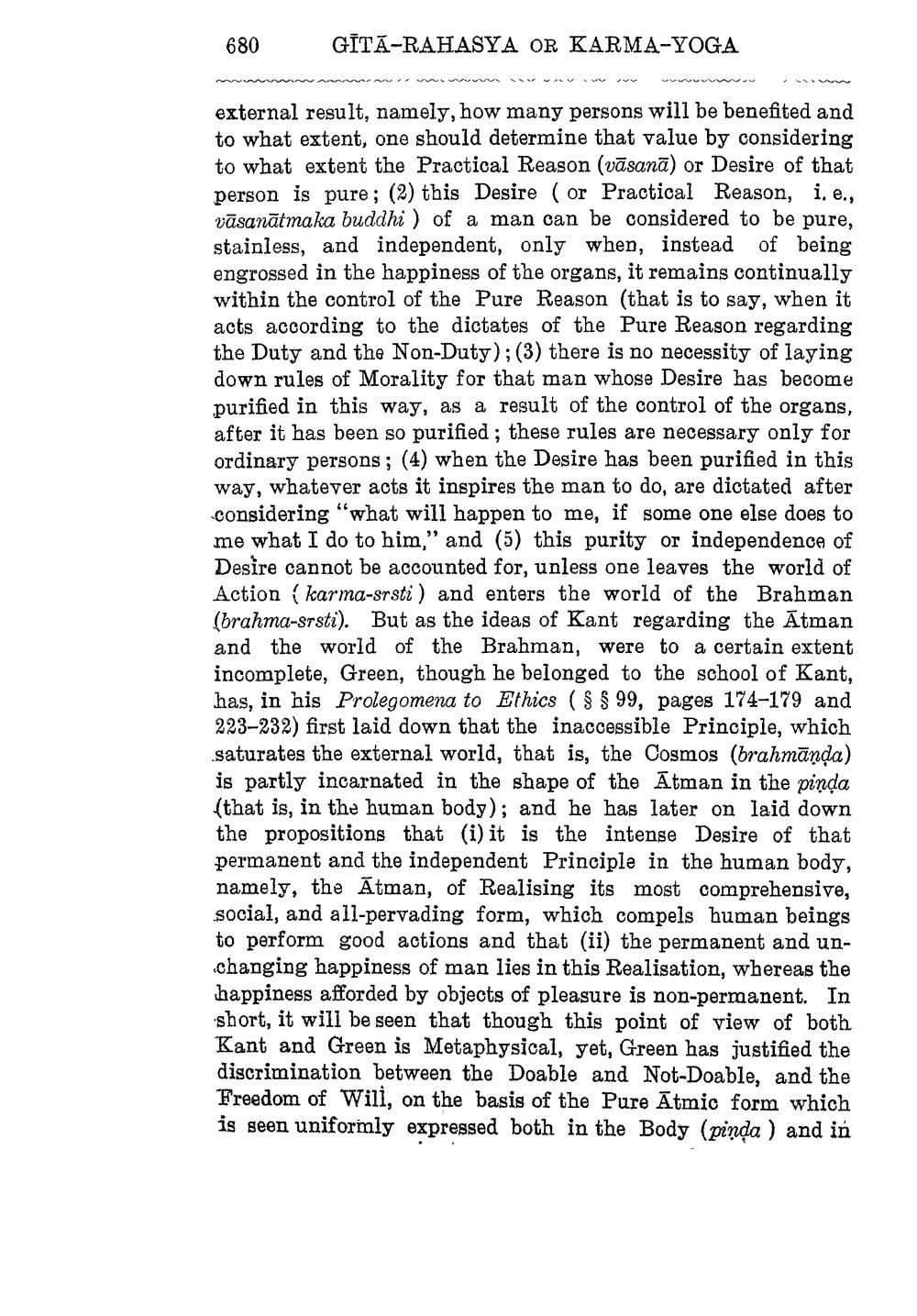________________
680
GĪTĀ-RAHASYA OR KARMA-YOGA
external result, namely, how many persons will be benefited and to what extent, one should determine that value by considering to what extent the Practical Reason (vāsanā) or Desire of that person is pure; (2) this Desire (or Practical Reason, i. e., vāsanātmaka buddhi ) of a man can be considered to be pure, stainless, and independent, only when, instead of being engrossed in the happiness of the organs, it remains continually within the control of the Pure Reason (that is to say, when it acts according to the dictates of the Pure Reason regarding the Duty and the Non-Duty);(3) there is no necessity of laying down rules of Morality for that man whose Desire has become purified in this way, as a result of the control of the organs, after it has been so purified; these rules are necessary only for ordinary persons; (4) when the Desire has been purified in this way, whatever acts it inspires the man to do, are dictated after considering what will happen to me, if some one else does to me what I do to him," and (5) this purity or independence of Desire cannot be accounted for, unless one leaves the world of Action (karma-srsti ) and enters the world of the Brahman (brahma-srsti). But as the ideas of Kant regarding the Atman and the world of the Brahman, were to a certain extent incomplete, Green, though he belonged to the school of Kant, has, in his Prolegomena to Ethics (S$ 99, pages 174-179 and 223-232) first laid down that the inaccessible Principle, which saturates the external world, that is, the Cosmos (brahmānda) is partly incarnated in the shape of the Ātman in the pinda (that is, in the human body); and he has later on laid down the propositions that (i) it is the intense Desire of that permanent and the independent Principle in the human body, namely, the Atman, of Realising its most comprehensive, social, and all-pervading form, which compels human beings to perform good actions and that (ii) the permanent and unchanging happiness of man lies in this Realisation, whereas the happiness afforded by objects of pleasure is non-permanent. In short, it will be seen that though this point of view of both Kant and Green is Metaphysical, yet, Green has justified the discrimination between the Doable and Not-Doable, and the Freedom of Will, on the basis of the Pure Atmic form which is seen uniformly expressed both in the Body (pinda ) and in




